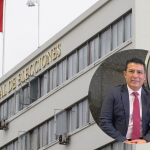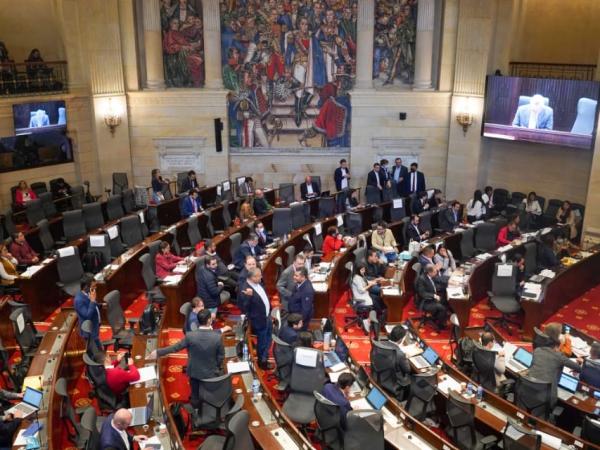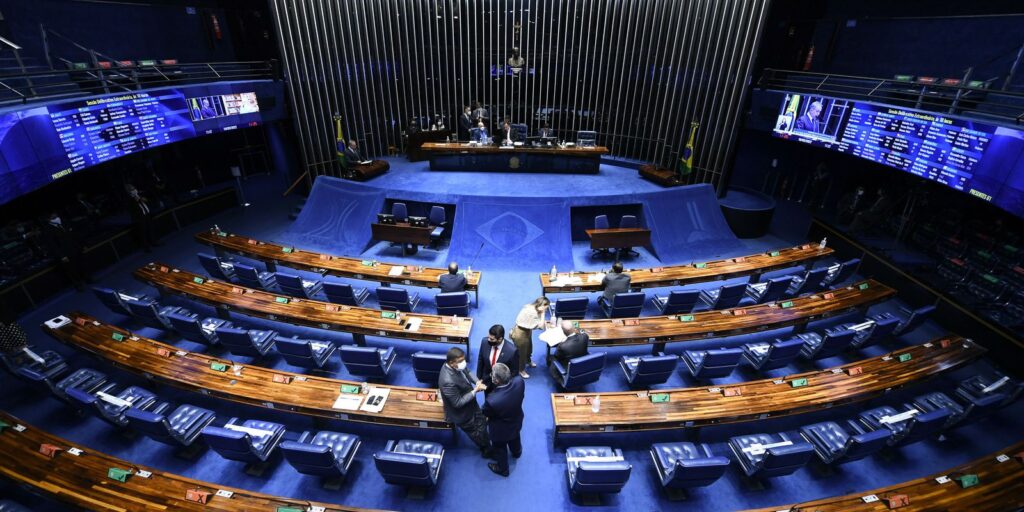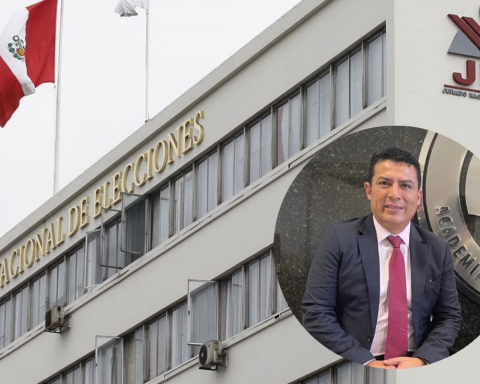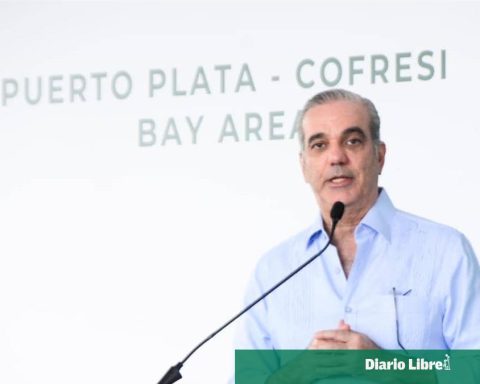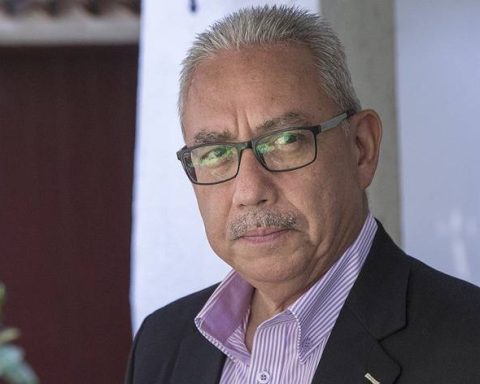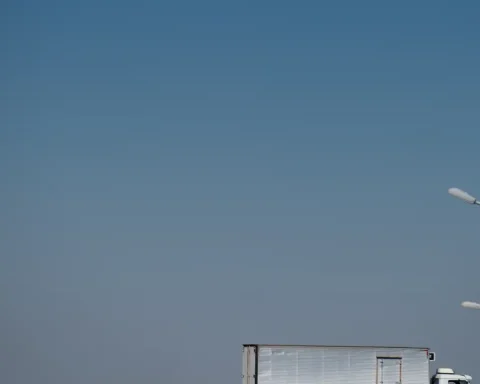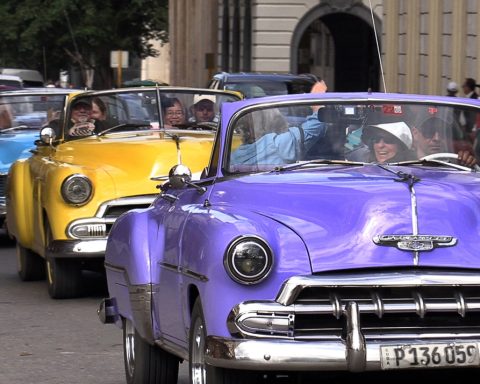“You cannot negotiate with weakness, the State must negotiate from a position of strength,” affirmed the current Minister of the Interior, Carolina Tohá (PPD), on August 28. She was referring to the dialogue between the State and “the groups that are using weapons in vindication of the indigenous cause”, according to his words, during an interview with TVN’s Estado Nacional, ten days before taking up his current cabinet post.
According to the response to a request via the Law of Transparency of The counter, During Tohá’s first 22 days as minister, the government filed a total of 15 complaints in the so-called South Macrozone, which includes the Biobío, La Araucanía and Los Ríos regions. One was filed directly by Interior in Victoria, a commune in the Province of Malleco de La Araucanía. Specifically, the crimes were frustrated homicide of a police officer in the act of duty; illegal possession of firearms and ammunition; unjustified shooting and robbery with intimidation.
Meanwhile, in the same period of time, the first 22 days of Izkia Siches as head of the Interior, a lawsuit was filed in the area. The presidential delegation of Biobío put it in the Cañete Guarantee Court for fire.
During the period that Siches was in office, 179 days, a total of 60 were posted. Of these, three were directly from the Interior and the rest from the presidential delegations.
“That calls for a way to approach the dialogue much more systematically. (…) I think there has been naivety,” added Tohá on August 28, referring to the call that linked the leader of the CAM, Héctor Llaitul, with an adviser to the former Minister of Social Development, Jeanette Vega.
The words of the current head of the Interior contrast with the words of the former minister of the portfolio, Izkia Siches, when before taking office she assured that “our spirit has to be one of dialogue, and there we have to work with all the actors, including the CAM” and that “militarizing the area has not achieved the objective of reducing violence, but rather has increased it.”
President Gabriel Boric’s trip to La Araucanía is getting ready and could take place next week, before the President travels to Thailand to participate in APEC 2022, on November 15.
Gonzalo Cordero, a member of the Libertad y Desarrollo advisory council, assures that there is “a contradiction that goes beyond the government” regarding the focus on the “conflict in La Araucanía.”
“They still haven’t completely abandoned the original path, nor have they fully assumed that of public order,” the lawyer describes, noting that all the President’s actions on the incoming trip “will be interpreted in one way or another.” “Who does he meet with, what level of security is he going to adopt, is he going to go to Temucuicui or not, there are many implicit definitions in a trip to La Araucanía,” he explains.
This week, on Wednesday, October 26, the Ministry of the Interior confirmed the resignation of the presidential delegate from Ñuble, Claudio Ferrada, and the presidential delegate from Los Ríos, Paola Marín. The latter left office after the Valdivia Court of Appeals upheld a protection appeal filed by the owners of an occupied farm in Los Ríos. The complainants argued that after the occupation began, the delegation received community leaders.
“What has happened is an evolution of the gaze due to learning. Indeed, at the beginning of the government we had a much more optimistic view of the possibilities of dialogue and also of the reception that these government efforts were going to have”, assured Jeanette Vega in an interview with Third.
He left the portfolio on August 25 after ex ante made public the records of a call between his adviser and Héctor Llaitul, leader of the Arauco Malleco Coordinator (CAM), who is currently in the Biobío Prison Compliance Center (CCP).
His departure, the first casualty of Boric’s cabinet, set the precedent that the President underlined days later, on the 31st of that month, when he said that “those who have no intention of dialoguing and who use force to try to impose their point of view they have to face the rule of law as corresponds to all Chileans”, in an interview with Times.
Change in worldviews
Gonzalo Cordero assures that there is a change of focus within the government around public order and the so-called South Macrozone. It points to an initial diagnosis, according to the lawyer, typical of the left and the Broad Front, which attributed “all the problems of public order and security in the country to what they call ‘structural justice’. Now that they are in government they face with the reality that it is different, and that the functioning of a government is only possible by subjecting itself to a system of rules, which in a democracy is the rule of law”.
“There is a significant change in terms of the worldviews that the government came to face the conflict in Araucanía compared to what is being done now,” describes Mauricio Morales, an academic from the U. de Talca and a doctor in Political Science . He gives the example of the state of exception renewed ten times —the last one was on October 25— thus failing the initial strategy of not continuing to vote on them and the subsequent one of elaborating a limited one (although the last one is still standing).
Morales adds that applying this tool has produced divisions within the coalitions that support the government, Democratic Socialism and Approve Dignity. He differentiates between two groups, “one that prefers a treatment of the conflict in the southern zone in terms of dialogue and negotiation exclusively. And another that also supports dialogue and negotiation, but with public order as the first responsibility”.
Marco Moreno, PhD in Political Science at the Leiden University in the Netherlands, assures that Minister Tohá’s focus in La Araucanía is to seek “a political solution to a conflict that has dragged on for years, rather than just thinking about the strategy that was used during the last 30 years of restitution of lands and delivery of subsidies”.
The figure of Carolina Tohá: popularity on the rise
“The government has had a drastic change in security. In the first place, abandoning the `nice’ positions or those seeking dialogue with violent agents, and moved on to a strategy of restitution of the rule of law. This change is evident when comparing the efforts of Izkia Siches and Carolina Tohá”, explains Mauricio Morales.
He adds that there is a change of tone: “The man from Tohá condemns the violence and supports the Carabineros, justifying actions that the Carabineros can carry out within the law when confronted with criminal agents.” It refers to the words of the Minister of the Interior this week, on Tuesday, October 26, when she said that a carabinero has the right to shoot “a criminal if he is shooting”, or if “he is putting the life of another at risk, he has the right to shoot him even before the criminal shoots.
“Carolina Tohá not only has networks with the political sector, but has also sought to rebuild the relationship with Carabineros that was resentful given that former Minister Siches had a rather distant relationship with the police,” says Marco Moreno.
Another difference that academics underline are the elements that surrounded their trips to La Araucanía. Both were met with arson attacks. The day before Siches’ arrival, three warehouses and an uninhabited house had been burned in the Biobío region. On the morning of the day Tohá landed, 3 forestry machines had been burned in the region.
Siches came to prepare the end of the state of emergency declared by former President Sebastián Piñera, which expired on March 26, while Tohá traveled after the renewal of the state of emergency approved on September 13 in Congress.
According to the Conecta Media Ranking, published on Friday, October 28 by ex ante, the head of the Interior was the one that had the most appearances taking into account digital media, television, radio and written press. Adding the appearances between September 7 and October 23, Tohá leads with 4,119 mentions. Then there are Vallejo with 2,687; Mario Marcel 2,143; Uriarte 1,816 and Orellana with 1,040.
In addition, it obtained second place as the best evaluated in the Survey Data Influences published on October 13, after the Minister of Finance, Mario Marcel, and surpassing the head of the General Secretariat of the General Government (Segegob), Camila Vallejo (PC).







